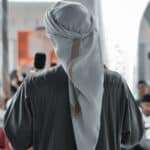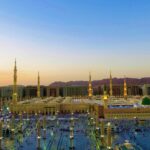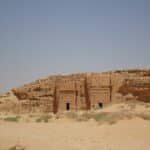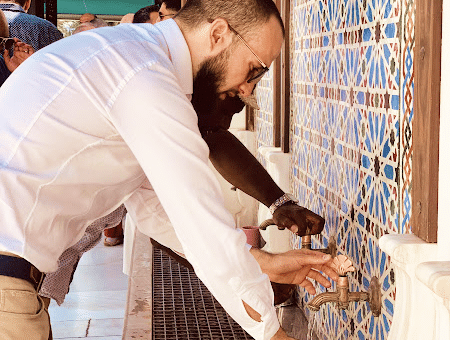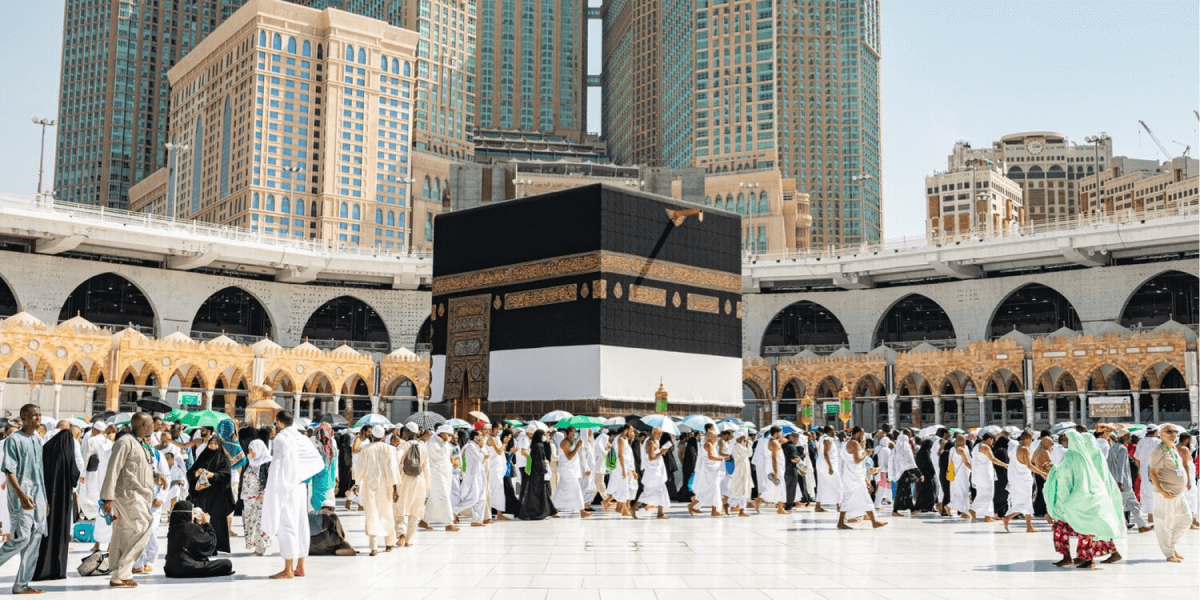Dhul Hijjah – Twelfth month of the Hijri Calendar
Dhul Hijjah is the twelfth and last month of the Islamic lunar calendar. This month brings the ten best days of the year. Encompassing three extraordinary events in the way of devotion to Allah SWT – Hajj, the day of Arafat, and Eid ul Adha – Dhul Hijjah is a month of increased spirituality, reward, and forgiveness.
Here is everything you need to know about Dhul Hijjah, the twelfth month of the Hijri calendar. So, without further ado, let’s begin!
What Is Dhul Hijjah in Islam?
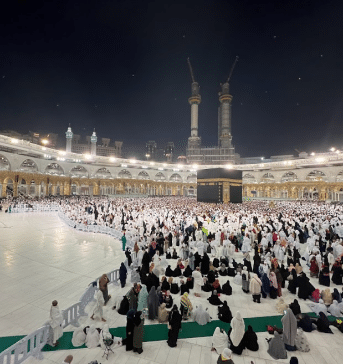 Dhul Hijjah is one of the holiest months in the Islamic calendar. Marking the end of the Islamic year, Dhul Hijjah is a month of increased spirituality and a time to seek the blessings and forgiveness of Allah SWT. In this sacred month, Muslims witness three very special events:
Dhul Hijjah is one of the holiest months in the Islamic calendar. Marking the end of the Islamic year, Dhul Hijjah is a month of increased spirituality and a time to seek the blessings and forgiveness of Allah SWT. In this sacred month, Muslims witness three very special events:
- Hajj,
- The day of Arafat
- Eid ul Adha
- The festival of sacrifice (Qurbani)
The holy month gives one the chance to repent for their sins, seek forgiveness and earn great rewards. Not only this, but the first ten days of Dhul Hijjah are better than all other days of the year. The Messenger (PBUH) of Allah SWT said, “There are no days on which righteous deeds are more beloved to Allah SWT than these ten days.” (Bukhari)
The month of Dhul Hijjah is an opportunity granted to the believers by Allah SWT to prosper, strengthen their faith, ask for forgiveness of sins, and to gain immense reward.
What to Do During Dhul Hijjah
Those who are not able to perform Hajj should use the blessed month of Dhul Hijjah to perform righteous acts in order to earn immense rewards.
These acts include giving charity (zakat or sadaqah), praying Tahajjud, honouring one’s parents, forbidding evil, observing fasts in the first nine days, upholding kinship ties, reciting the Holy Quran, doing dhikr of Allah SWT, praying Eid Salah, and giving prophetic Qurbani.
What Is So Special about Dhul Hijjah?
It is the month of Dhul Hijjah in which rewards for deeds are multiplied, giving the believers a chance to earn great rewards, blessings, and forgiveness. Allah SWT swears by these days: “By the dawn; by the ten nights.” [Holy Quran, 89:1-2]
Allah SWT also reminds His believers, “Remember Allah during the appointed days.” [Holy Quran, 2:203]
It was the month of Dhul Hijjah in which Allah SWT perfected His religion for the Ummah, completed His favour upon the Messenger (PBUH), and chose Islam as the way of life for the people.
The significance of this month can also be understood by the fact that it is the month of Dhul Hijjah, in which the annual pilgrimage is performed, the day of Arafat is witnessed, and the rituals of Eid ul Adha are performed.
First 10 Days of Dhul Hijjah
Known as the best days of the year, the first ten days of Dhul Hijjah give Muslims another chance to grow spiritually and reconnect with their faith after Ramadan. For those who are unable to perform Hajj, these sacred days give Muslims a once-in-a-lifetime chance to redeem themselves in the eyes of Allah SWT and gain immense blessings and rewards.
The Messenger (PBUH) of Allah SWT said, “There are no days greater and more beloved to Allah SWT than these ten days of Dhul Hijjah. So, increase in them your declaration of the oneness of Allah SWT (tahleel), your exaltation of him (takbeer), and your praise of him (tahmeed).” (Ahmed)
What Is the Reward for Fasting in Dhul Hijjah?
Fasting is one of the best of deeds in Islam. According to Islamic scripture, it is considered Sunnah to fast in the first nine days of Dhul Hijjah as Prophet Muhammad (PBUH) used to fast during these days. In a hadith Qudsi, Allah SWT says, “All the deeds of the son of Adam are for him, except fasting, which is for Me and I will give the reward for it.” (Bukhari)
However, if one is unable to fast during these nine days, it is highly recommended to fast on the Day of Arafah, the 9th of Dhul Hijjah. Just as Laylat al-Qadr is the most blessed night of the year, Arafah is the most blessed day of the year. The Messenger (PBUH) of Allah SWT said, “There is no day on which Allah SWT frees more people from the Fire than on the day of Arafah.” (Muslim)
Therefore, we should spend this day availing ourselves of Allah’s incredible mercy and seeking His forgiveness. On this day, non-pilgrims have the opportunity to wipe out the sins of two years through fasting. Prophet Muhammad (PBUH) said, “It (fasting on the Day of ‘Arafah) expiates the sins of the past year and the coming year.” (Muslim)
One can increase the reward by having good intentions and ensuring to fast on the first Monday and the two Thursdays of Dhul Hijjah as it is the Sunnah of Prophet Muhammad (PBUH).
Do I Have to Fast All 10 Days of Dhul Hijjah?
Fasting during the first nine days of Dhul Hijjah is mustahabb (recommended) for those who are not able to perform Hajj. Ibn Abbas (RA) narrated that the Prophet Muhammad (PBUH) said, “There are no days on which righteous deeds are more beloved to Allah than these ten days – i.e., ten days of Dhul-Hijjah).” They said: “O Messenger of Allah, not even jihad for the sake of Allah?” He said: “Not even jihad for the sake of Allah unless a man goes out himself with his wealth and does not come back with anything (i.e., he expends all his wealth and is martyred).” (Narrated by al-Bukhari, 969)
Hunaydah ibn Khalid narrated that one of Prophet Muhammad’s (PBUH) wives said, “The Messenger (PBUH) of Allah SWT used to fast nine days of Dhul Hijjah and the day of ‘Ashura’ and three days of each month – the first Monday and two Thursdays.” (Narrated by Imam Ahmad, 21829; Abu Dawood, 2437; classed as da’eef in Nasb al-Raayah, 2/180, but organized as Saheeh by al-Albani.)
However, note that fasting on the 10th of Dhul Hijjah is haram (prohibited). This is indicated by a hadith of Abu Saeed al-Khudri (RA): “He [the Prophet (PBUH)] forbade fasting on the day of ‘Eid al-Fitr and the day of al-Nahr (the day of sacrifice, i.e., ‘Eid al-Adha).” (Narrated by al-Bukhari, no. 1992; Muslim, 827)
Therefore, even though they are referred to as the ten holy days of Dhul Hijjah, the virtue is to only fast during the nine days of the sacred month.
Virtues of 10 Days Dhul Hijjah
Marking the end of the Islamic year, Dhul Hijjah is one of the most blessed months of the Hijri Calendar. The virtues of Dhul Hijjah are as follows:
Virtue 1 – Recite the Holy Quran
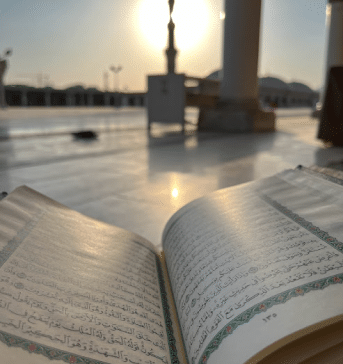 Reciting the Holy Quran in the sacred days of Dhul Hijjah is one of the best acts of worship that one can perform to seek the blessings of Allah SWT.
Reciting the Holy Quran in the sacred days of Dhul Hijjah is one of the best acts of worship that one can perform to seek the blessings of Allah SWT.
The Messenger (PBUH) of Allah SWT said, “Whoever reads a letter from the Book of Allah, he will have a reward. And that reward will be multiplied by ten. I am not saying that ‘Alif, Laam, Meem’ is a letter, rather, I am saying that ‘Alif’ is a letter, ‘Laa'” is a letter, and ‘Meem’ is a letter.” (Tirmidhi)
Prophet Muhammad (PBUH) said, “There are no days that are greater before Allah or in which good deeds are more beloved to Him than these ten days, so recite a great deal of tahleel, takbeer, and tahmeed during them.” (Ahmad):
Tahmeed: Al-hamdu Lillah (All praises be to God)
Tahleel: Laa ilaha ill-Allah (There is no god but Allah SWT)
Tasbeeh: Subhaan-Allah (Glory be to God)
You can also recite other versions of the takbeer. Such as:
Allahu akbar, Allahu akbar, laa ilaaha ill-Allah, Allahu akbar, wa Lillaah il-hamd.
Allah is Most Great, Allah is Most Great, there is no god but Allah; Allah is Most Great and to Allah all praises belong.
Therefore, if you wish to strengthen your faith and build a stronger relationship with Allah SWT, the Prophet (PBUH) has instructed that one must: “Read the Holy Quran, for verily it will come on the Day of Standing as an intercessor for its companions.” (Muslim)
Virtue 2 – Pray Tahajjud
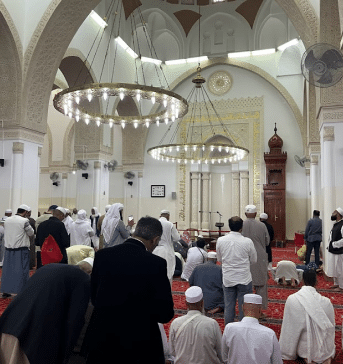 Little do people know that praying at night in the first ten days of Dhul Hijjah is equivalent to praying on the Night of Power (Laylat al-Qadr).
Little do people know that praying at night in the first ten days of Dhul Hijjah is equivalent to praying on the Night of Power (Laylat al-Qadr).
The Messenger (PBUH) of Allah SWT said, “There are no days more beloved to Allah SWT that He be worshipped in them than the ten days of Dhul Hijjah; fasting every day of them is the equivalent of fasting a year, and standing every night of them (in prayer) is equivalent of standing on the Night of Qadr.” (Tirmidhi)
Virtue 3 – Repent and Give Sadaqah
According to Hadith and Islamic scriptures, performing Hajj is the ultimate way for Muslims to expiate their sins and seek forgiveness. However, only those who are financially and physically stable are allowed to visit Makkah, Saudi Arabia, to perform the annual pilgrimage.
An entire month to seek forgiveness and repent for their sins, even if not on Hajj.
Repenting in the month of Dhul Hijjah brings one close to Allah SWT. The Almighty in the Holy Quran says, “Seek forgiveness of your Lord and repent to Him, [and] He will let you enjoy a good provision for a specified term and give every doer of favour his favour.’ [Holy Quran, 11:3]
In addition to this, there is no better time to give charity than the first ten days of Dhul Hijjah. Allah SWT will amplify and maximize the reward for the given Zakat or Sadaqah. Not only this, but the charity will work as a protective shield for you on the Day of Judgment. Prophet Muhammad (PBUH) said, “The believer’s shade on the Day of Resurrection will be their charity.” (Tirmidhi)
Hasan al-Basri (RA) said, “Going to fulfil the need of your brother is better for you than performing Hajj after Hajj.”
Therefore, on these blessed days, donate as much as possible to the ones in need and orphans whether it is in the form of food, clothes, money, or even a smile. Every good act is considered charity in the eyes of Allah SWT.
Why Do We Fast on Arafat Day?
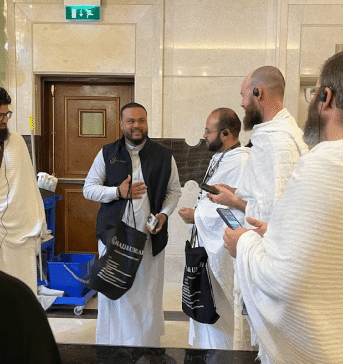 The day of Arafat is one of the most important days in Islamic history. It is the day on which Allah SWT completed His favour upon Prophet Muhammad (PBUH), perfected His religion for us, and approved Islam as the way of life. The Almighty swore by the significance of the Day of Arafat in Surah al-Burooj.
The day of Arafat is one of the most important days in Islamic history. It is the day on which Allah SWT completed His favour upon Prophet Muhammad (PBUH), perfected His religion for us, and approved Islam as the way of life. The Almighty swore by the significance of the Day of Arafat in Surah al-Burooj.
Fasting on the Day of Arafat is highly recommended and encouraged for those who aren’t able to go on Hajj. Prophet Muhammad (PBUH) said, “Fasting on the Day of Arafah expiates the sins of the past year and the coming year.” (Muslim)
Therefore, it is a Sunnah to fast on the day of Arafat. The Messenger (PBUH) of Allah SWT stated, “There is no day on which Allah SWT frees people from the Fire more so than on the day of ‘Arafah. He comes close to those (people standing on ‘Arafah), and then He revels before His Angels saying, ‘What are these people seeking.'” (Muslim)
“The people of knowledge consider it recommended to fast on the Day of Arafah, except for those at ‘Arafat.” (Tirmidhi)
Hadiths about Dhul Hijjah
Ibn Abbas (RA) narrated that Prophet Muhammad (PBUH) said, “There are no days in which righteous deeds are more beloved to Allah SWT than these ten days.” The people asked, “Not even Jihad for the sake of Allah SWT?” He said, “Not even Jihad for the sake of Allah SWT, except in the case of a man who went out, giving himself and his wealth up for the cause, and came back with nothing.” (Al-Bukhari)
The Messenger (PBUH) of Allah SWT, when asked about the importance of fasting on the day of Arafat in Dhul Hijjah, said, “Fasting on the day of Arafah is an expiation for the preceding year and the following year.” (Muslim)
He (SAW) also added, “Read the Quran, for verily it will come on the Day of Standing as an intercessor for its companions.” (Muslim)
In another narration, Prophet Muhammad (PBUH) said, “There are no days that are greater before Allah SWT or in which good deeds are more beloved to Him than these 10 days, so recite a great deal of Tahleel, Takbeer, and Tahmeed.” (Ahmad):
Tahmeed: Alhamdulillah (All praises be to God)
Tahleel: La ilaha il Allah (There is no god but Allah SWT)
Tasbeeh: Subhaan-Allah (Glory be to God)
One of the wives of Muhammad (PBUH) said: “Allah’s Messenger used to fast the [first] nine days of Dhul Hijjah, the day of ‘Ashurah, and three days of each month.” (Abu Dawud)
Signifying the importance of Qurbani (sacrifice), the Messenger (PBUH) of Allah SWT said, “For every hair of the Qurbani, you will receive a reward from Allah SWT.” (Tirmidhi)
Abu Talha (RA) reported, “The Prophet (PBUH) sacrificed for the one who could not sacrifice from his Ummah, one who bore witness to the Oneness of Allah and [his] Prophethood.” (Tabarani and Ahmad)
Summary – Dhul Hijjah
Dhul Hijjah occurs at the end of the lunar calendar, making it the last month of the Islamic calendar. Prophet Muhammad (PBUH) has asked his Ummah to abstain from sins and to perform good deeds in order to seek the blessings and mercy of Allah SWT.
Dhul Hijjah gives the believer a chance to repent for their mistakes and turn over a new leaf just before the beginning of the new Islamic year.
Explore The New Pilgrim App
The Ultimate App
for Hajj and Umrah!





